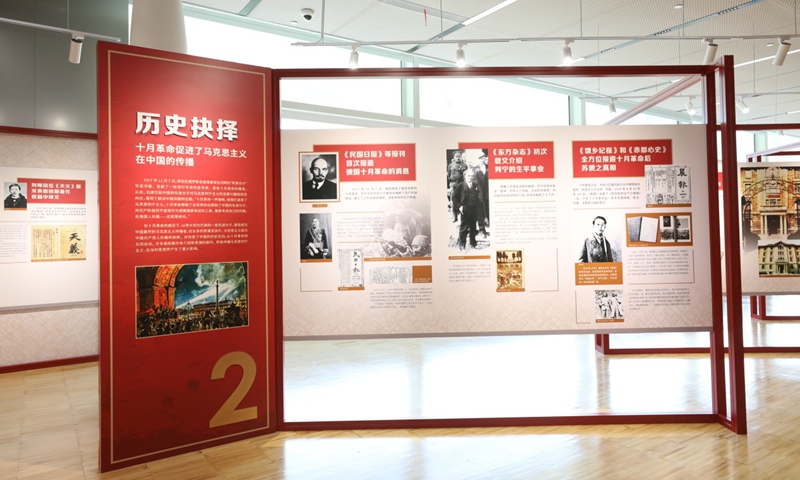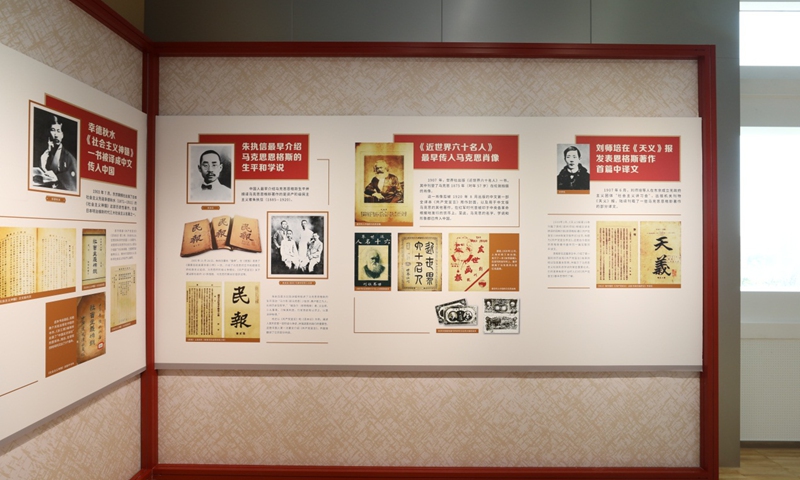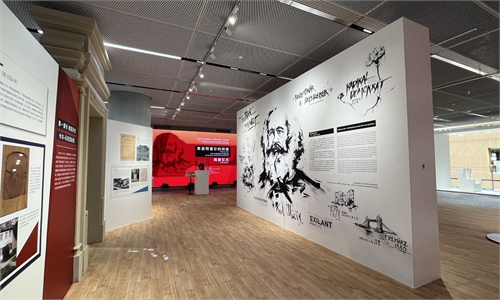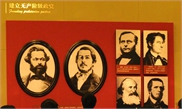ARTS / CULTURE & LEISURE
Exhibition highlighting early spread of Marxism in China held to mark 140th anniversary of Marx’s passing

Photo: Courtesy of the Shanghai Federation of Social Science Associations
Tuesday marked the 140th anniversary of Karl Marx’s passing. In honor of this great thinker and the profound influence of Marxism on China’s social development, an exhibition about the early spread of Marxism in China has opened in Shanghai.
The exhibition, co-organized by the Shanghai Federation of Social Science Associations (SFSSA) and the memorial site of the first National Congress of the Communist Party of China (CPC), demonstrates the early dissemination of Marxism in China around the first half of the 20th century.
The exhibition shows how a Shanghai-based journal, The Review of the Times, introduced the names of Marx and Friedrich Engels in 1899. It moves forward to the founding of the People’s Republic of China in 1949, and shows visitors the historical track of the translation, publication and dissemination of Marxism-Leninism classic works in China, the Global Times learned from the SFSSA.
China experienced several socialist ideological trends, with many schools of socialism emerging, such as liberal socialism and state socialism, said the exhibition’s academic adviser Xu Juezai, who is also deputy director of the Shanghai Marxism Research Institute.
“In the collision and debate of various ideological trends, Marxism and scientific socialism were [introduced to China],” Xu told the Global Times.
Visitors to the exhibition can learn about the process of the very early introductions and translations of Marxism in modern China, and the efforts of some big names at that time.
For instance, Liang Qichao, a famous writer and reformist living in the late Qing Dynasty (1644–1911) and the early period of the Republic of China (1912-1949), was the first Chinese person who mentioned Marxism in his writings in 1902.

Photo: Courtesy of the Shanghai Federation of Social Science Associations
Marxism was further spread in China after Russia’s October Revolution (1917). The exhibition demonstrates how a magazine introduced Vladimir Lenin to Chinese readers for the first time, and how the first-ever full Chinese translation of The Communist Manifesto was published.
The CPC and its members made great contributions to the early dissemination of Marxism in China after the Party was founded in 1921. The exhibition shows visitors many vivid historical details particularly in hard times, such as how the revolutionary pioneers secretly published the works of Marx and Engels under the threat of Kuomintang reactionaries, disguising them as other books.
1938 marked the 120th anniversary of Marx’s birth. It was also a landmark year for the spread of Marxism in China, as the country’s first research institute of Marxism-Leninism was founded in Yan’an and the first full Chinese translation of Capital was published, the exhibition showed.
Also in that year, Chairman Mao Zedong for the first time proposed the localization of Marxism in China.
Two other exhibitions, highlighting Marx’s life and works and rare editions of CPC journals over the century, also opened to the public in Shanghai this week.
The three exhibitions are part of a series of Marx-themed commemorative events in the city this year, the Global Times learned.




